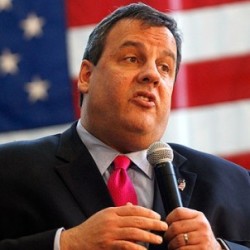NJ Governor Christie Vetoes Sports-betting Bill

Undaunted by the US Supreme Court’s refusal to hear New Jersey’s sports wagering argument in June, the state Legislature went ahead anyway and passed bills S2250 and A3476 in both the state Senate and Assembly. The State Senator Raymond Lesniak sponsored bills would have allowed private firms to run sports betting operations in the state, but the move seemed to fly in the face of NJ Governor Chris Christie’s initial response to the Supreme Court announcement, who commented at the time “That’s the way it goes. They said no, so we have to move on.”
Now Christie has officially vetoed the bills designed to circumvent the 1992 federal ‘Professional and Amateur Sports Protection Act‘ (PASPA) and permit sports betting at NJ casinos and race tracks. Needless to say Sen. Raymond Lesniak reacted harshly to the move, describing it as “a dagger in the heart of Atlantic City and our ailing horse racing industry.”
Missed opportunity
When Nevada, Delaware, Oregon and Montana were granted exclusive rights to offer sports betting in the USA, New Jersey was given a year’s grace to become part of the elite group. At the time, however, the Garden State’s gambling industry was thriving and so legislators failed to take advantage of the golden opportunity. By 2011, New Jersey gambling found itself in the middle of a downturn and so NJ Gov. Chris Christie subsequently signed a sports wagering bill into law, which he estimated would generate more than $100 million in extra annual revenues.
The move drew an immediate backlash from some of the biggest sports leagues in the US, including the NBA, NFL, and NHL, and soon after the federal court blocked the law from being enacted. It also represented a major disappointment for the Christie administration.
Ignoring federal law counterproductive
Gov. Christie’s failed sports wagering bill may give some indication as to his recent reluctance to oppose federal law, and commenting after his “absolute veto” of bill S-2250/A-3476, said:
“While I do not agree with the Circuit Court’s decision, I do believe that the rule of law is sacrosanct, binding on all Americans. That duty adheres with special solemnity to those elected officials privileged to swear and oath to uphold the laws in our nation.. [ignoring federal law is] counter to our democratic traditions and inconsistent with the Constitutional values I have sworn to defend and protect.”
Christie giving up
As far as State Senator Raymond Lesniak is concerned, Christie’s veto represented a major capitulation by the State Governor, and a marked contrast to the stance he adopted in 2012 when he stated that “if someone wants to stop us, then let them try to stop us.”
Christie’s veto also has the potential to scupper a sponsorship deal agreed between Monmouth Park and the UK’s biggest bookmaker William Hill which was to be the landmark racing facility’s exclusive sports betting provider in the eventuality of legislation.
Nevertheless, Lesniak still doesn’t seem to want to throw in the towel just yet and said he intends to override the veto if he can secure enough Republican support, an unlikely prospect at best. Commenting on the all round unsatisfactory affair, Lesniak, said:
“He’s giving up. And that’s sad, because he’s giving up a great opportunity for New Jersey to have the benefits from sports betting that Las Vegas has, and that are currently enjoyed by organized crime.. Either we’re going to have to try to override him or wait until we get another governor.”
Further bad news for NJ gambling
The latest announcement comes as further bad news for a state gambling industry currently imploding. Since 2006 New Jersey’s gambling revenues have almost halved from $5.21 billion to $2.86 billion last year as more and more US states have embraced casinos as a means of increasing state budgets. In its local area alone, NJ has to now contend with competition from Pennsylvania, Maryland, New York, Connecticut and Delaware.
Consequently, the most pessimistic of analyst foresee a Detroit like scenario for New Jersey, something that seems to already be happening with just eight of the state’s original 12 casinos expected to survive 2014. The Atlantic Club Casino was the first to shut its doors for good, with the Showboat Casino, and the Trump Plaza Casino expected to soon experience the same fate. Even the $2.4 billion Revel Casino which opened in April 2012 has been declared bankrupt and next week an auction will be held for the 1,400-room property, which employs 3,140 staff.
Unfortunately, NJ online gambling, too, has failed to live up to its pre-regulation hype and the $63.04 million in revenues the industry has generated since launching in November 2013 has done little to lift NJ from its slump.









